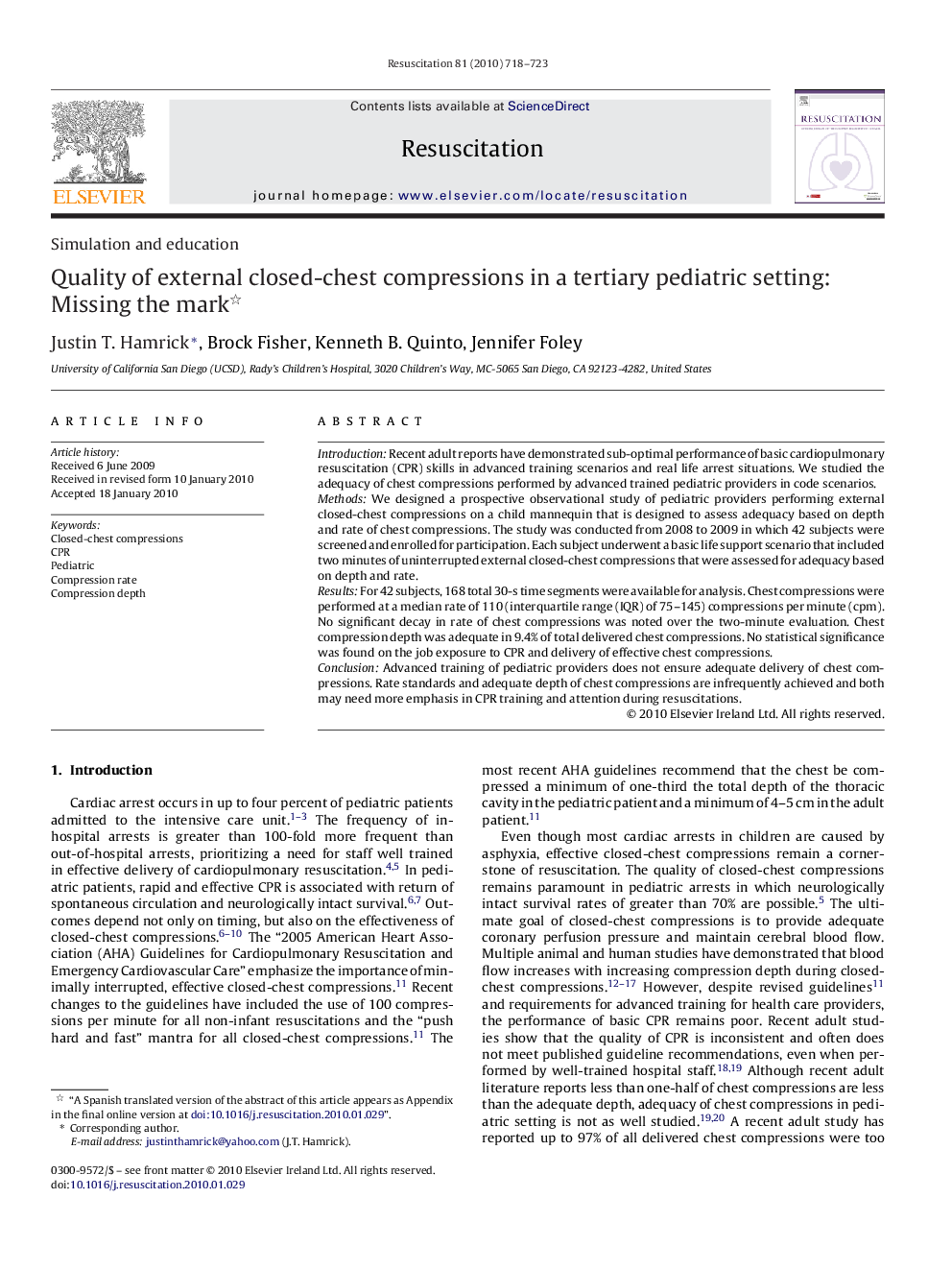| Article ID | Journal | Published Year | Pages | File Type |
|---|---|---|---|---|
| 3009894 | Resuscitation | 2010 | 6 Pages |
IntroductionRecent adult reports have demonstrated sub-optimal performance of basic cardiopulmonary resuscitation (CPR) skills in advanced training scenarios and real life arrest situations. We studied the adequacy of chest compressions performed by advanced trained pediatric providers in code scenarios.MethodsWe designed a prospective observational study of pediatric providers performing external closed-chest compressions on a child mannequin that is designed to assess adequacy based on depth and rate of chest compressions. The study was conducted from 2008 to 2009 in which 42 subjects were screened and enrolled for participation. Each subject underwent a basic life support scenario that included two minutes of uninterrupted external closed-chest compressions that were assessed for adequacy based on depth and rate.ResultsFor 42 subjects, 168 total 30-s time segments were available for analysis. Chest compressions were performed at a median rate of 110 (interquartile range (IQR) of 75–145) compressions per minute (cpm). No significant decay in rate of chest compressions was noted over the two-minute evaluation. Chest compression depth was adequate in 9.4% of total delivered chest compressions. No statistical significance was found on the job exposure to CPR and delivery of effective chest compressions.ConclusionAdvanced training of pediatric providers does not ensure adequate delivery of chest compressions. Rate standards and adequate depth of chest compressions are infrequently achieved and both may need more emphasis in CPR training and attention during resuscitations.
